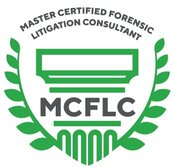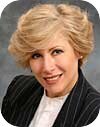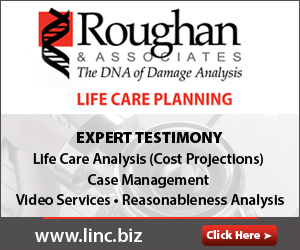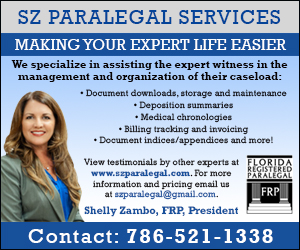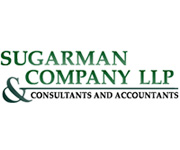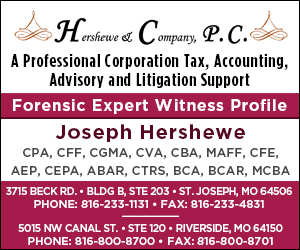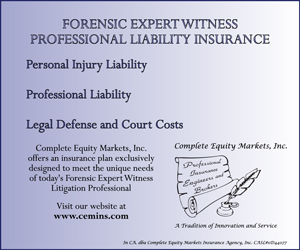 |
|||||||||||||||||||||||||||
| Archive | Subscribe | Share With a Colleague | Advertise | forensic.org | Find an Expert | |||||||||||||||||||||||||||
FEWA News
Obtaining the Master Certified Forensic Litigation Consultant (MCFLC) credential shows attorneys and other interested parties that you have received extensive education in the nine distinct areas of the FEWA Core Program, as well as gained additional experience and attributes above and beyond the CFLC program. Learn more about MCFLC eligibility and apply below.
Did you miss an installment of the FEWA Virtual Academy Series? Catch up on past presentations and earn CFLC Credit! The Forensic Expert Witness Association offers webinars specifically tailored to the continuing education of expert witnesses. The FEWA Virtual Academy series is free for all FEWA members. The webinars are created to fit within the CFLC Core Program. FEWA Member Spotlight
FEWA member, Nina T. Rodd, PhD, DABPS, is a licensed Clinical Psychologist by the California Board of Psychology and has also earned multiple professional licenses as a Psychotherapist, School Psychologist, and a Board Certified Forensic Psychologist from the American Board of Psychological Specialties. Dr. Rodd has extensive training and experience with adults and children in the clinical and Forensic arenas. Learn more about Nina below. Whether or not a professional qualifies as an expert or offers admissible testimony can become a contentious issue in court. It’s essential to understand your jurisdiction’s standards for expert qualification—typically Rule of Evidence 702 and admissible scientific testimony. If you’re an expert, the opposing party may challenge your testimony or qualifications. If you’re an attorney, you must establish that the expert is qualified, and their testimony is reliable and accurate. Expert witnesses can provide critical evidence in a case. Most litigations benefit with input from an expert witness, even if the case settles before trial. An expert witness provides opinion testimony, rather than fact-based testimony. Suppose that a bystander sees a car hit you while you cross the street. That bystander can testify for you as a fact witness. But suppose that you want someone to testify about the way a back injury from your accident caused nerve pain in your legs. For that, you might need an expert witness to give a medical opinion.
Industry News
If expert witnesses contradict each other on a legal matter at issue, should courts exclude their opinions? In a recent case, the ruling judge said no, stating that differing expert opinions are not necessarily mutually exclusive. Indeed, even if conflicting opinions are presented, expert testimonies should supplement each other. Once given, it is up to the jury to determine their significance. Expert witnesses prefer to travel to prepare themselves for a trial in person with their legal teams even when the trial itself is to be conducted remotely, a report has found. Experts who had undergone “intensive cross-examination” during the past year also said techniques used by lawyers to place pressure on and unnerve them were “significantly less effective” in a virtual courtroom. For a variety of reasons, court reporters perform a vital role in the legal process and deserve much respect within the legal community. Court reporters are a valuable part of the litigation process just as much as deponents, lawyers, and other participants. The needs of court reporters should be just as important as the needs of anyone else who attends a deposition or other hearing.
Calendar of Events
|
|||||||||||||||||||||||||||

